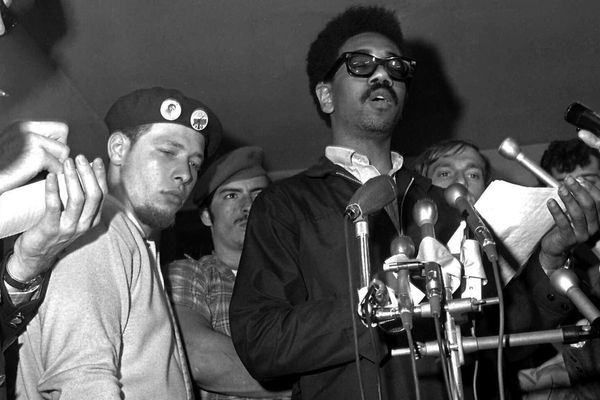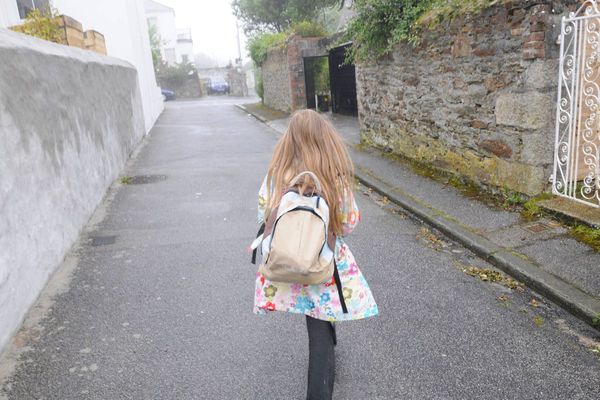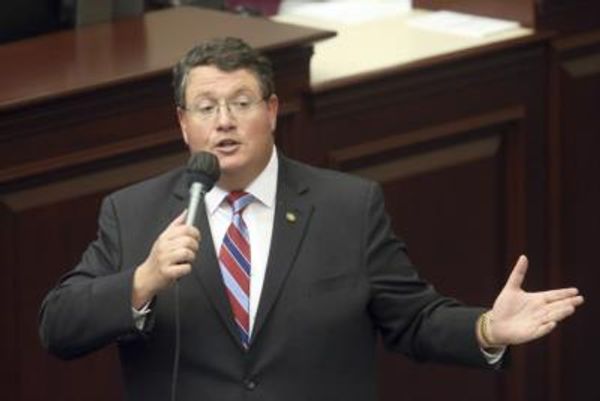
Every Conservative leader in living memory has made the same basic promise to UK voters: work hard and you will earn more, buy a bigger house and one day pass it on to your children. Thirteen years after the party returned to power, some allies of Prime Minister Rishi Sunak fear the dream is dying.
Tory lawmakers are watching the British housing market with increasing apprehension and say the coming crisis could devastate millions of Britons and kill off any hopes Sunak may have of salvaging the Conservative vote. Some party strategists and MPs worry that won’t just mean defeat at the general election expected in 2024, but could mark a generational shift in British politics.
Some 800,000 people who are renewing their mortgages in 2023 will see their interest rates double, as the era of cheap money comes crashing to a halt. That disaster will be particularly acute for homeowners with larger mortgages and that typically means the aspirational middle classes in the south-east of England who are at the heart of the Tory vote. Those with £500,000 mortgages could see their monthly payments jump by more than £1,000 a month.
One Tory MP called it the party’s worst nightmare, with the impact concentrated a key demographic: property-owners in their 40s in marginal seats. These voters are the key to the Conservatives winning any election, strategists say. Lib Dem Treasury spokesperson Sarah Olney, who represents the Tory-Lib Dem marginal seat of Richmond Park, said this was a “huge issue” in her constituency where nearly 15,000 people have a mortgage.

If millions of under-50s feel they have no reason to vote Tory, the political damage could be long-term, a former Cabinet minister said.
The flip side of the mortgage hit heading toward middle-aged voters is that the Tory party has also failed to help younger people get onto the property ladder, missing its manifesto pledge to build 300,000 new homes a year. This was seen by ministers as fundamental shift to homeownership attainable for many, even if some backbenchers worried about the threat to their leafy commuter belt base. Higher interest rates now make buying a house even harder, and with landlords passing on their increased costs to renters, millions of younger voters are stuck with soaring rents and nothing to show for it.
If the impact of rising interest rates around the world is not something Tory MPs blame solely on Sunak, Britain’s giant tax burden — at its highest since the 1940s — is.
One basic move for any Tory election campaign is to frame themselves as a low-tax party that will incentivize work and protect voters’ money from the traditionally higher-tax Labour. That argument has been destroyed in recent years, one MP on the right of the party said.

Chancellor Jeremy Hunt’s decision at the Autumn Statement to freeze income tax thresholds until 2028 means thousands of middle-to-higher income workers will be pulled into higher tax bands as inflation eclipses earnings. House of Commons Library research suggests some middle class families with two earners on £60,000-a-year each will be some £40,000 worse off over the next decade as a result. These are the voters that win, or lose, elections for the Tories, one MP said.
Marginal tax rates have also left Tory MPs seething. A single-earner family with three children now pays a marginal tax rate of 68% on income between £50,000 and £60,000, according to analysis by Bloomberg. A single person on £50,000 pays a marginal rate of 42%. The rate between £100,000 and £125,000 is 62%. One minister said Britain’s tax system needs to be radically simplified with a complete overhaul, conceding that successive Conservative governments had deliberately hammered the middle classes with stealth taxes.
Sunak is also being criticized by Tory MPs for scrapping former Prime Minister Liz Truss’s plans to reform childcare without a replacement policy. Truss had sought to scrap mandatory staff-child ratios in an attempt to reduce costs that see parents pay up to £2,000-a-month for a nursery place in the south-east.
A former minister said that if the Tories looked at something similar to the Norwegian policy of capping childcare costs at around £300 per month, they could boost productivity and win over huge numbers of middle-class voters. They said this could be a major issue but so far was one that the government had a tin-earned approached toward. Sunak said in a speech last week that he was committed to improving childcare in Britain.

It isn’t just an assault on personal finances that Tory MPs feel threatens the Conservative way of life. The National Health Service is crumbling under a vast treatment backlog following Covid-19, as well as shocking ambulance waiting times, alarming excess death statistics and a wave of industrial action. Social care has long been a policy problem that governments have kicked into the long grass.
Who would be most worried about devastating TV reports of people in their 60s dying from heart attacks after ambulances failed to show up? another MP asked — Older voters who are fundamental to Tory electoral fortunes.
Then there’s the more traditional Tory policy issues of crime and borders. Sunak has sought to use the issue of “small boat” Channel crossings to demonstrate he is tough on illegal immigration, though many Tories feel this is a risky strategy as it’s proven an extremely difficult issue to solve.
More pressing for other MPs is the government’s record on tackling crime affecting the middle-classes, like burglary and anti-social behavior. Home Office figures last year showed fewer than 7% of domestic burglaries result in criminal charges. For car theft it’s less than 1%. Labour has made anti-social behavior a campaign issue, citing figures showing 2 million reported incidents went unattended in the last three years. A Tory MP said a constant complaint of their constituents’ was that many crimes had effectively been decriminalized because police just don’t investigate.

Other Tory MPs have their own more niche gripes about the direction the country has gone under their stewardship. One said that governments since 2010 had made life worse for entrepreneurs and small businesses, typified by this week’s decision to slash support for firms on their energy bills. They cited tough reforms targeting people who pay themselves through personal service companies as another un-Conservative policy.
Another said they’d been bombarded by voters complaining about the pollution of rivers and beaches with sewage in recent years, noting that the environment was a fundamental issue for rural Tories. Even richer Tory voters are reconsidering the party. One MP protested that British private schools had become the preserve of the international super-rich, pricing out well-off Britons who had been whacked by higher taxes.
All these problems have been building up for more than a decade. Sunak has less than two years to fix them.
--With assistance from Andrew Atkinson.
©2023 Bloomberg L.P.







